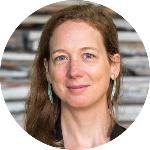Experimental Psycholinguistics
Expsy was born with the aim of bringing together people who work on behavioural experiments in different departments and research groups at the University of Stuttgart.
Expsy members have regular meetings to discuss their research topics and ask for feedback and questions about behavioural experiments, experimental design, lab equipment and statistical analysis. Additionally, the group organises workshops on common interests.
The group is supported by the Stuttgart Research Focus Language and Cognition (http://www.srf.uni-stuttgart.de/index.en.html).
Coordinators: Diego Frassinelli (IMS), Nadja Schauffler (IfLA), Judith Tonhauser (IfLA)
The group meets twice per month on Every 2nd Thursday, 09:30 - 11:00 a.m. in Linguistics Lab (K2, 2nd floor) .
| 15.11.2018 | Nadja Schauffler |
| 29.11.2018 | Jun Chen |
| 13.12.2018 | Elena Vaiksnoraite |
| 10.01.2019 | Diego Frassinelli |
| 24.01.2019 | Fabian Bross |
| 07.01.2019 | Judith Tonhauser |
Current members:
| Fabian Bross | ILG |
| Jun Chen | ILG |
| Diego Frassinelli | IMS |
| Nadja Schauffler | IfLA |
| Judith Tonhauser | IfLA |
| Elena Vaiksnoraite | IfLA |
Associates:
| Antje Schweitzer | IMS |
| Daniel Duran | Uni. Freiburg |
| Gianina Iordachioaia | IfLA |
| Petra Augurzky | Uni. Tübingen |
| Sabine Schulte im Walde | IMS |
| Alessandra Zarcone | Fraunhofer IIS |
| Arndt Riester | Uni. Köln |
| Sylvia Springorum | IMS |
| Eva Smolka | Uni. Konstanz |
| Michael Neumann | IMS |
| Fabian Schubö | IfLA |
| Jen Sikos | IMS |
| Enrica Troiano | IMS |
| Yela Schauwecker | ILR |
| Thomas Rainsford | ILR |
| Katrin Schweitzer | |
| Michael Walsh | |
| Natalie Lewandowski | |
| Hans Kamp |
| Rebecca Carroll | |
| Alla Abrosimova | |
| Tobias Galts | |
| Margaret Zellers | |
| Sofiana Chiriacescu | |
| Alex Judea | |
| Duygu Özge | |
| Umut Özge | |
| Carla Umbach | |
| Heike Zinsmeister | |
| Daniela Marzo | |
| Evi Kiagia | |
| Lonneke van der Plas | |
| Jens Stegmann | |
| Max Kisselew | |
| Giusy Turco |
Workshop "Advanced (non-)linear regression techniques in R"
A workshop on linear mixed effects models and generalized additive mixed models (GAMM) lead by Martijn Wieling (University of Groningen).
When: May 3-4, 2018
Where: The workshop will take place at the Institute for Natural Language Processing (IMS) on the campus “Vaihingen” of the University of Stuttgart.
Supported by the Stuttgart Research Focus Language and Cognition.
Workshop "Programming in R"
Invited speaker: Bodo Winter (University of Birmingham)
When: Feburary 22-24, 2017
Where: The workshop will take place at the Institute for Natural Language Processing (IMS) on the campus “Vaihingen” of the University of Stuttgart.
Supported by the Stuttgart Research Focus Language and Cognition.
Workshop "Linear Mixed Models using R"
Invited speaker: Bodo Winter (UC Merced)
When: July 06-08, 2016
Where: The workshop will take place in "Casino" building “K4” (Geschwister-Scholl-Str. 24) on the campus “Stadtmitte” of the University of Stuttgart which is located in the centre of the city.
Supported by the Stuttgart Research Focus Language and Cognition.
Workshop "Theories and methods in eye-tracking research: Eye-tracking"
Invited speakers:
- Tom Foulsham (University of Essex)
- Coco Moreno (University of Edinburgh)
When: 15./16. December 2015
Where: The workshop will take place in "Casino" building “K4” (Geschwister-Scholl-Str. 24) on the campus “Stadtmitte” of the University of Stuttgart which is located in the centre of the city.
Supported by the Forschungsverbund Sprachwissenschaft und Kognition (FSK), Universität Stuttgart
Abstract:
Eye tracking is a widely used technique to uncover the mechanisms underlying human information processing. In this workshop, we will discuss theories, methods and analyses necessary for understanding, designing and carrying out empirical studies using eye tracking. We will focus on studies using eye tracking across a spectrum of paradigms mostly tapping into language and vision. Sessions will include lectures, hands-on demonstrations, and exercises regarding the analysis of experimental data. On the first day, we will introduce eye tracking methodology and paradigms from reading and visual cognition (e.g., search task), and teach the participants to extract from the data, the basic measures that are widely reported in the literature.
On the second day, we will go on to examine recent work looking at eye movements in complex, realistic stimuli and the interaction between vision and language. In the lab session, participants will learn to align fixations to speech, model fixation data distributed over a time-course, and perform scan-pattern similarity analyses. There will also be time for the participants of the workshop to practice example
data or the results of their own experiments. By the end of the workshop participants will build an understanding of eye movement methodology in order to carry out state-of-the-art investigations in vision, language, and human cognition at large.
Below a list of publications by Expsy members which have benefited from presentation and feedback within the group.
2012
- Umut, D., Umut, Ö, & von Heusinger, K. (2012) Discourse Structuring Potential of Optional Object Marking in Turkish. Poster at AMLaP - 2012, Riva del Garda, 6-8 September 2012.
- Zarcone, A., Utt, J., & Lenci, A. (2012). Logical Metonymy from Type Clash to Thematic Fit. Talk at AMLaP - 2012, Riva del Garda, 6-8 September 2012.
- Zarcone, A. (2012). Logical metonymy resolution beyond qualia roles. Talk at DGKL - Fünfte Internationale Konferenz der Deutschen Gesellschaft für Kognitive Linguistik, Freiburg, 10-12 October 2012.
- Analysing annotations (statistical modeling), Nadja Schauffler.
- Word Processing in a Multimodal Context: Experimental Design, Diego Frasinelli.
More information

Judith Tonhauser
Prof. Dr.Professor English Linguistics

